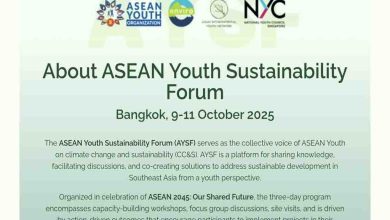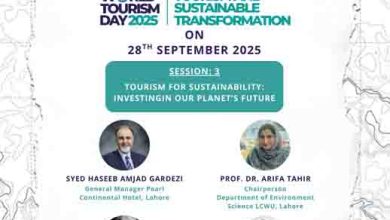Experts term technology only solution for agriculture sector sustainability
Technology was the only solution for sustainable agriculture
HYDERABAD: National and international experts said food insecurity was triggered by shrinking land resources and water scarcity, which were the results of increasing population, settlements on green lands, water-logging and drought in Sindh.
They said technology was the only solution for sustainable agriculture and added that small farmers were away from modern technology while the world was worried about food insecurity and malnutrition.
They were speaking on Thursday at a provincial seminar titled “Role of AgriTech – Unlocking Opportunities and Overcoming Barriers” held under the aegis of the Sindh Agriculture University (SAU) with the support of the European Union, Rural Support Programme Network (RSPN) and Growpak.
SAU’s dean of the Faculty of Agricultural Engineering, Altaf Ali Siyal, said that despite rapidly increasing population and water shortage issues, Pakistan had not been able to implement modern technology in farming, unfortunately. “We have not been able to achieve satisfactory results of better production on less water and making desert areas cultivable,” he said, adding: “Use of satellites, drip irrigation systems, drone technology, geo-information system (GIS) and remote sensing were technologies, but we are lagging behind in them when compared with the developed countries.”
Food and Agriculture Organisation (FAO) Sindh head James Okoth said the FAO was working closely with the provincial institutions, civil society and research institutions on nutrition, food security and climate change in Pakistan, especially in Sindh, as the international community was concerned about hunger and economic crisis in the developing countries.
Sindh Abadgar Board senior vice president Mehmood Nawaz Shah said that Pakistan had been talking about implementation of modern technology in agriculture in the last 70 years, but still it was stuck in traditional agricultural practices, and modern methods of AgriTech were yet to reach the common farmer.
“This is why many problems are being faced and will be confronting farmers in future,” he said.
Nabi Bux Sathio of the Sindh Chamber of Agriculture (SCA) said many countries, including Pakistan, could not achieve the United Nation’s Millennium Development Goals (MDGs) in the past, and they were still far away from achieving the goals of food security, nutrition and sustainable agriculture.
He said that despite claims, institutions could not fulfil requirement of seeds of various crops.
RSPN project coordinator Muzamil Ahmed said they were working with institutions to remove obstacles in the implementation of sustainable agriculture and technology, and to ensure implementation of modern technology by farmers in Sindh after Punjab.
SAU’s director of the University Advancement and Financial Assistance, Dr Mohammad Ismail Kumbhar, said AgriTech was a change that could revolutionise agricultural practices, which meant leveraging innovations such as technological integration, precision agriculture, remote sensing, artificial intelligence and data analytics.
Pro-VC Dr Jan Mohammad Marri, Agriculture Research Director General Noor Muhammad Baloch, Liaquat Bhutto, Aslam Memon, Wilson Gillal, Ali Nawaz Chanar, Ghulam Sarwar Panhwar, Rano Mal, Faisal Bilal and others were present on this occasion. Experts submitted recommendations regarding a conference on the development of sustainable agriculture in Sindh.
Published in Dawn, June 2nd, 2023







